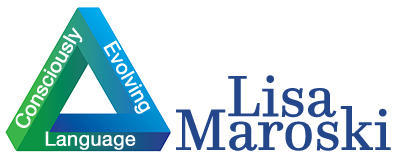Embrace Paradox
It can feel scary and even wrong to hold contradictory ideas at the same time. That’s because popular culture encourages us to pick sides, root for “our team” to win—whether our team is a political party, ideological stance, or even a theoretical preference.
But nature considers short-term winning and losing within an infinite game—the game of life—where neither sides wins “in the end” because both sides are needed to keep the game going ad infinitum. For example, the success of one species relies on the success of others to provide a food source, keep its growth in check, and so on.
Balancing “this and that” requires that we hold both concepts in mind simultaneously. However, sometimes we focus too much on “this” and forget about “that,” or we attach good to “this” and bad to “that.” The more one side has been judged harshly relative to the other, the harder we must work to see the efficiencies and deficiencies of both. Embracing both this and that is easier to do when value judgments are minimized.
The fragmentation we experience in daily life—that is, negotiating the various thises or thats, derives from the many false dichotomies that are rooted in (our English) language. How can we re-weave the broken-apart conceptual strands back into whole cloth?
Evolve Language
By stretching the concept of evolution to include the effects of human volition, we can apply the concept of evolution to the study and co-creative development of the system of systems comprising “language.”
In the past, when someone needed to expand language—by inventing something new or identifying something that hadn’t been identified before—they would invent new words, often by using roots from ancient languages like Greek and Latin. This way the new word could feel more familiar and have a connection to other terms and to history. Although this practice has served us well for thousands of years, it is time to consider other novel changes to language as well— perhaps even structural changes—new syntax, new types of signs, new ways to arrange those signs, and so on.
If you feel called to participate in catalyzing this type of linguistic evolution, contact us and describe the skills and talents you bring to such an endeavor.
Integrate
Integration is different from synthesis in that the essence of what is integrated isn’t lost in a homogeneous blend. Just as our bodies are an integration of heart cells, nerve cells, muscle cells and so on, their uniqueness isn’t lost but is integral to the functioning of a complex organism. Similarly, our psyche is an integration of different facets with different functions. During development, however, sometimes psychic facets get “split off.” The work of integrating them involves a process that C. G. Jung called Individuation. Just as psychic individuation involves becoming who you really are (apart from society’s expectations), language also might need to develop and evolve along with our human individuation processes. As we become more whole, language needs more intricate ways to express wholeness.
English is exquisitely capable of distinguishing, i.e., fragmenting our representations into finer-grained nouns, but in doing so we can lose sight of wholes. (Wholes are, of course, defined at different levels of system.) In light of how important systems thinking is and will continue to be, how can we concomitantly evolve language along with our efforts to integrate our inner selves and our whole selves with our environment?
To be part of our project to co-evolve ourselves and our language, contact us and share your ideas, skills, talents, and/or desires to learn.
